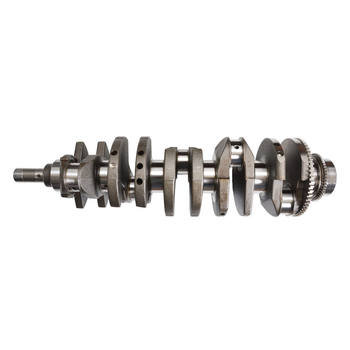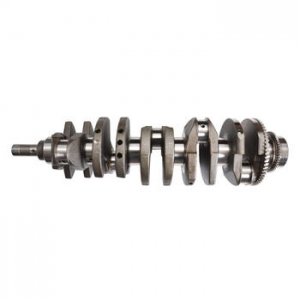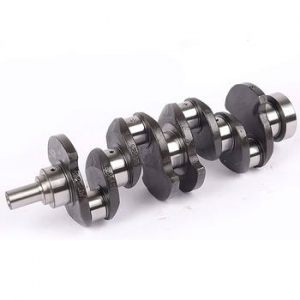The Importance of Crankshaft Lubrication
To be honest, crankshaft lubrication is one of the most critical aspects of engine performance. It ensures smooth operation, reduces wear and tear, and extends the lifespan of your engine components. But what many people don't realize is that the design of the oil passages plays a significant role in achieving effective lubrication.
Understanding Oil Passage Design
So, how does oil passage design affect crankshaft lubrication? Well, oil passages are tiny channels within the engine block that transport oil from the pump to the crankshaft bearings. Their size, shape, and location can significantly impact oil flow rate, pressure, and distribution, ultimately determining the efficiency of the lubrication system.
Optimizing Oil Passage Design
Now that we understand the role of oil passages let's delve into optimization. Optimizing oil passage design involves modifying these channels to enhance oil delivery to the crankshaft bearings. This can be achieved through various techniques, including Computational Fluid Dynamics (CFD) simulations and experimental testing.
Leveraging CFD Simulations
Interestingly enough, CFD simulations have become an essential tool in oil passage design optimization. They allow engineers to simulate oil flow through the passages and identify areas of high pressure, turbulence, or restricted flow. By analyzing these simulations, engineers can make informed decisions about redesigning the oil passages to improve lubrication efficiency.
Experimental Testing
While CFD simulations provide valuable insights, experimental testing is still necessary to validate the simulation results. This involves manufacturing prototype engines with the optimized oil passage designs and conducting rigorous testing under real-world conditions. The data collected from these tests is then used to refine the designs further, ensuring they meet the desired performance criteria.
Practical Applications and Benefits
Optimizing oil passage design offers several benefits, such as reduced friction, improved engine efficiency, and extended component life. Here are some practical applications:
- Automotive Industry: Enhancing fuel efficiency and reducing emissions in modern vehicles.
- Marine Industry: Ensuring reliable operation and reducing maintenance costs in marine engines.
- Aerospace Industry: Improving engine performance and safety in aircraft engines.
How Our Products Can Help
At our company, we specialize in providing advanced solutions for oil passage design optimization. Our state-of-the-art CFD software and testing facilities enable us to deliver highly efficient and reliable oil passage designs tailored to your specific requirements.
Conclusion
In conclusion, optimizing oil passage design is a crucial aspect of achieving effective crankshaft lubrication. By leveraging tools like CFD simulations and experimental testing, engineers can create oil passage designs that enhance lubrication efficiency, reduce wear, and extend the lifespan of engine components. As engine technology continues to evolve, the importance of oil passage design optimization will only grow.
Have you ever wondered how your engine's lubrication system could be improved? Or perhaps you're curious about the latest advancements in oil passage design optimization. Either way, our team of experts is here to help answer your questions and provide solutions to meet your unique needs. Don't hesitate to reach out for more information.
For more detailed information, please visit our official website: https://www.obfe.cn




